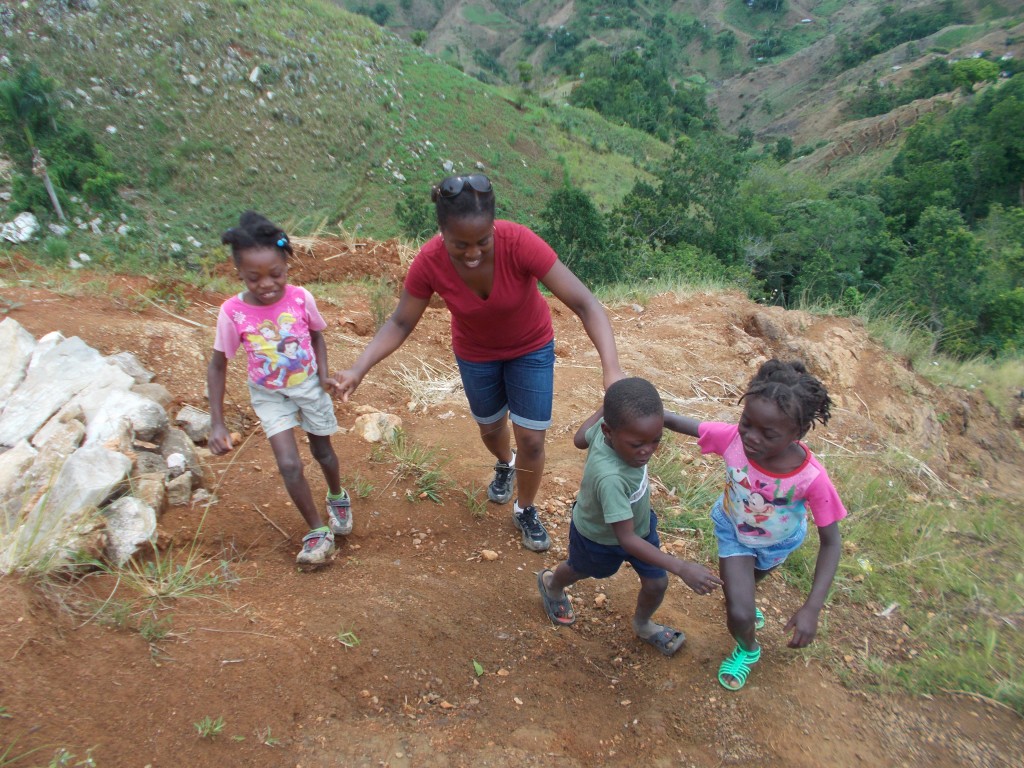 Now, anyone who knows me knows that I am not one for pop culture and I certainly am not one to keep up with the latest fashion trends, movies starts or gossip. But the rise of Lupita Nyong’o, stemming from her role in the acclaimed “12 Years a Slave” (which I have not seen), is one I could ignore – especially with the incessant updates on my Facebook wall and twitter feed. I just had to take a short break from my pre-trip preparations to watch her Oscar acceptance speech and for sure, now I get it. As a result, I now have an increased level of vigor in time to head back to Haiti this week.
Now, anyone who knows me knows that I am not one for pop culture and I certainly am not one to keep up with the latest fashion trends, movies starts or gossip. But the rise of Lupita Nyong’o, stemming from her role in the acclaimed “12 Years a Slave” (which I have not seen), is one I could ignore – especially with the incessant updates on my Facebook wall and twitter feed. I just had to take a short break from my pre-trip preparations to watch her Oscar acceptance speech and for sure, now I get it. As a result, I now have an increased level of vigor in time to head back to Haiti this week.
I do not know the depths of Ms. Nyong’o’s life experiences or what she has had to overcome to get to where she is today. I do know that she struck a cord when she ended her award speech saying, “No matter where you come from, your dreams are valid.”
Growing up in New York City, I was told on the one hand that I could be and do whatever I wanted so long as I put my mind to it. On the other hand, there was no shortage of reminders (outside of my household) that my family and I came from the poorest country in the Western Hemisphere. Because of this, it was often implied that there was a limitation to how ‘great’ I could truly become. The fortitude to create my own realities and to chart unconventional paths allowed me to rise beyond these setbacks and frankly, I am still rising beyond them. At the same time, I have had access to resources, opportunities and all types of support that have also advanced my successes – in addition to just my personal drive.
But what about the Haitian kids in Haiti today? Working in the mountains of Petit Goave, my colleagues and I often reflect on how much the children there would soar intellectually and otherwise if only they had access to fundamental services. While most of these children have no concept of how our beloved country is viewed by the outside world, they are very much aware of the fact that their circumstances, to an extent, serve as undue constraints to their long-term growth. How do we encourage and cultivate their dreams so that they too are able to see beyond their present situations? 
I like to think that urban planning is a lens that can help them imagine themselves and their communities beyond their current status to where they can be, while also equipping them with the resources and skill sets they need to actually get there. Planners work with a community to develop and articulate its vision (or dream so to speak), define the goals that will enable that vision to come to fruition and then set measurable benchmarks for the necessary objectives in achieving those goals. This framework is broad, yet specific, enough to include the individual dreams of every child in that community because at the end of the day, it’s their futures we are planning for after all.
Every dream deserves to be had and more importantly, pursued. As Ms. Nyong’o said, the dreams of children in Haiti – or in any of the world’s more vulnerable countries – are no less valid than their counterparts in countries that are more endowed. It is up to us therefore, those of us committed to nation building through community development, to not neglect the dreams and hopes of these children. Nation building has to start with people building and promoting a people has to incorporate a concerted effort to simultaneously build up the children.


About The Author: Vanessa L.
More posts by Vanessa L.